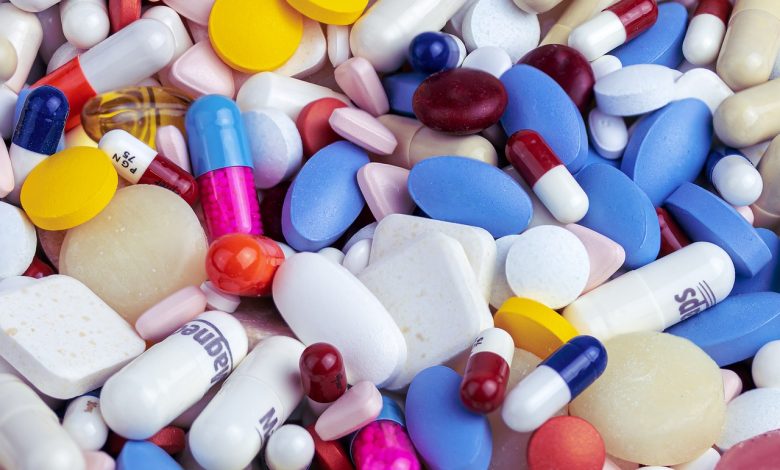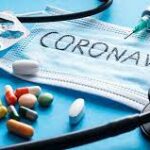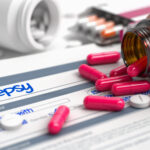List Of Drugs To Avoid With Diverticulitis

Taking any medication with a medical condition requires caution as some medications may interact with the condition or worsen its symptoms. In addition, some medications may cause side effects that can worsen the condition or interfere with other medications being taken.
You should always be cautious of potential drug interactions, particularly if you are taking multiple medications for different conditions. Drug interactions can occur when two or more medications interact with each other and either enhance or reduce their effectiveness.
What is Diverticulitis?
Diverticulitis is a medical condition that occurs when small pockets or pouches (diverticula) in the lining of the intestine become inflamed or infected. The condition usually affects the large intestine (colon) and can cause symptoms such as abdominal pain, bloating, constipation or diarrhea, fever, and nausea.
The exact cause of diverticulitis is not known, but it is believed to be associated with a low-fiber diet, aging, and a lack of physical activity. Diverticulitis can also be caused by a blockage of the diverticula with food particles or fecal matter, which can lead to inflammation and infection.
Diverticulitis is a relatively common condition, particularly in older adults. In the United States, it is estimated that approximately 5-10% of people over the age of 50 have diverticulitis, and the incidence of the condition increases with age. According to the National Institute of Diabetes and Digestive and Kidney Diseases (NIDDK), about 200,000 people in the United States are hospitalized each year due to diverticulitis.
While diverticulitis is more common in developed countries like the United States, it is becoming more prevalent in other parts of the world as well, particularly as people adopt more Western-style diets low in fiber. Overall, the incidence of diverticulitis is increasing worldwide, likely due to a combination of factors such as aging populations and changes in lifestyle and diet.
List Of Drugs To Avoid With Diverticulitis
People with diverticulitis should avoid medications that can irritate or damage the lining of the intestines, slow down bowel motility, or cause dehydration or electrolyte imbalances. In addition, they should also avoid medications that may cause side effects or interact with other medications that could worsen symptoms or slow down the healing process.
Here are some general tips on medications that should be used with caution in people with diverticulitis:
1. Nonsteroidal anti-inflammatory drugs (NSAIDs): NSAIDs such as ibuprofen or aspirin can irritate the lining of the intestines and may worsen symptoms in people with diverticulitis.
2. Opioid pain medications: Opioid pain medications may slow down bowel motility and worsen symptoms of constipation in people with diverticulitis.
3. Antibiotics: Antibiotics are commonly used to treat diverticulitis, but they should be used only as prescribed and for the full course of treatment to avoid bacterial resistance.
4. Antispasmodic medications: Antispasmodic medications, such as hyoscyamine, dicyclomine, or scopolamine, can help relieve abdominal cramping, but they may also slow down bowel motility and worsen constipation.
5. Medications that cause constipation: Some medications that cause constipation, such as antidepressants, antihistamines, and calcium channel blockers, should be used with caution in people with diverticulitis.
6. Proton pump inhibitors (PPIs): PPIs, such as omeprazole and pantoprazole, are commonly used to treat acid reflux and ulcers, but they may increase the risk of developing Clostridium difficile (C. diff) infection, which can worsen symptoms in people with diverticulitis.
7. Steroids: Steroids, such as prednisone or methylprednisolone, can increase the risk of developing diverticulitis, and they should be used with caution in people with a history of the condition.
8. Diuretics: Diuretics, such as furosemide or hydrochlorothiazide, can cause dehydration and electrolyte imbalances, which can worsen symptoms in people with diverticulitis.
9. Blood thinners: Blood thinners, such as warfarin or heparin, can increase the risk of bleeding in people with diverticulitis.
10. Antacids: Antacids, such as aluminum hydroxide or magnesium hydroxide, can interact with other medications and should be used with caution in people with diverticulitis.
11. Anti-diarrheal medications: Anti-diarrheal medications, such as loperamide or bismuth subsalicylate, should be used with caution in people with diverticulitis, as they can slow down bowel motility and worsen constipation.
12. Iron supplements: Iron supplements can cause constipation and worsen symptoms in people with diverticulitis.
13. Potassium supplements: Potassium supplements can cause dehydration and electrolyte imbalances, which can worsen symptoms in people with diverticulitis.
14. Non-absorbable antibiotics: Non-absorbable antibiotics, such as rifaximin, can disrupt the natural balance of bacteria in the gut and may worsen symptoms in people with diverticulitis.
15. Statins: Statins, such as atorvastatin or simvastatin, can cause constipation and worsen symptoms in people with diverticulitis.
16. Antidepressants: Some antidepressants, such as tricyclic antidepressants or selective serotonin reuptake inhibitors (SSRIs), can cause constipation and worsen symptoms in people with diverticulitis.
17. Medications that lower blood pressure: Some medications that lower blood pressure, such as beta-blockers or calcium channel blockers, can cause constipation and worsen symptoms in people with diverticulitis.
18. Immunomodulators: Immunomodulators, such as azathioprine or infliximab, are used to treat autoimmune diseases, but they may increase the risk of developing infections in people with diverticulitis.
19. Chemotherapy drugs: Chemotherapy drugs can cause diarrhea or constipation and may worsen symptoms in people with diverticulitis.
20. Supplements: Some supplements, such as psyllium or glucomannan, can cause constipation and worsen symptoms in people with diverticulitis.
In addition to certain medications, there are also certain foods that people with diverticulitis should avoid. These include:
1. Nuts and seeds: These can become trapped in the diverticula and cause inflammation or infection.
2. Popcorn: Like nuts and seeds, popcorn can get lodged in the diverticula and cause irritation or inflammation.
3. High-fat foods: These can slow down digestion and make symptoms worse. Examples include fried foods, fatty meats, and high-fat dairy products.
4. Spicy foods: Spicy foods can irritate the digestive tract and worsen symptoms.
5. Refined grains: These are low in fiber and can cause constipation. Examples include white bread, white rice, and pasta made from refined flour.
6. Sugary foods and drinks: These can cause rapid fluctuations in blood sugar and can worsen symptoms.
Instead, people with diverticulitis should focus on eating a diet that is high in fiber, which can help promote healthy bowel movements and reduce the risk of developing diverticulitis or complications from the condition. Examples of high-fiber foods include whole grains, fruits, vegetables, legumes, nuts and seeds that have been finely ground or pureed. It is also important to drink plenty of fluids to help keep the digestive system functioning properly.
It is important to note that not all of the medications and foods listed above will cause problems for everyone with diverticulitis and that people with diverticulitis may need to take certain medications to manage other health conditions. However, it is important to talk to a healthcare provider before starting or stopping any medications to ensure that they are safe and effective for each individual’s specific situation.





